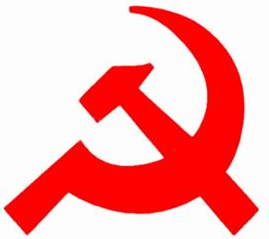In the “Strategic Review of Defense and National Security” which reported in 2017 on France's policy in this matter, E. Macron put it this way: “We have entered an era of great turbulence. For the most part, the risks and threats we face were not unknown to us, but their manifestations have accelerated, their effects have amplified and come closer. "
The least that can be said is that this appreciation could only be reinforced by the events that have occurred since 2017 which reflect a significant rise in global tensions with a more frequent use of force, while all the major and regional powers are increasing their military budgets. At the same time, the disengagement of the United States from a number of important treaties on the regulation and mutual surveillance of weapons, particularly nuclear weapons, has accelerated and materialized. This finding is not just a figment of our imagination. In a June 26 interview with the newspaper "Le Monde", German Chancellor A. Merkel put it this way: “We believe that NATO is of great value to each of the member states. We in Germany know that we have to spend more on defense; we have achieved considerable increases in recent years, and we will continue on that path to enhance our military capabilities. American troops in Germany help to protect not only Germany and the European part of NATO but also the interests of the United States of America. Look at the world; look at China or India: there are compelling reasons to remain committed to a transatlantic defense community and our shared nuclear umbrella. But of course Europe needs to carry more of the burden than during the cold war. We grew up in the certain knowledge that the United States wanted to be the leading world power. Should the US now wish to withdraw from that role of its own free will, we would have to reflect on that very deeply."
The convergence between the two biggest powers of the European Union is clear: integration into NATO under US supervision and significant increase in their own defense effort. It is on this basis that France and the Federal Republic of Germany advocate a relative integration of their means of defense at European level. For France, nuclear deterrence is an asset of its power strategy and its place on the UN Security Council where it is one of the five permanent members (China, United States, Russian Federation, France and United Kingdom) gives it significant international weight since it has a right of veto. Until now, the disposition and the organization of the French forces have been designed for interventions on territories of foreign countries and especially in what is called "asymmetric" wars. Terrorism is often the pretext for these interventions. Thus, within NATO or UN operations France has participated in the wars against Serbia, Afghanistan, Syria, Iraq, Libya... and maintains it operational troops in the African Sahel. Its presence in the territories where it maintains a colonial presence, ensures it a capacity of intervention in practically all the maritime zones of the world. French imperialism always acts in the interests of the predominantly French capitalist monopolies and especially in Africa (see the article on Mali in Weekly No. 670). But the situation, when imperialism was largely dominated by the USA in the "cold" war against the socialist countries and in the first place the USSR, is changing. The emergence of countries and especially in Asia with China which take their place in the imperialist system and aspire to a redistribution of the world, leads to even stronger competition from capitalist monopolies and therefore to even more violent clashes of interests within the imperialist system, for the domination of weak nations, the control of natural mineral and agro-food resources, the communication channels, the workforce...This observation leads to a shift in the defense strategy.
Thus, on June 17, General Burkhard, Army Chief of Staff (CEMAT) clarified the guidelines for the Army during a hearing by the Defense Committee of the National Assembly. Previously in the "letter from CEMAT", he had outlined the strategic evolution which can be summarized as follows:“Hard conflicts between States remain […] possible even probable. More than ever, the Army must be ready to produce military power from the outset to face an unexpected danger, knowing how to withstand shocks with resilience." These “hard conflicts” between States take place in a context “above all marked by uncertainty, reinforced by many recent geopolitical upheavals” and “accentuated by the fact that Europeans find it difficult to conceive and organize by themselves the conditions of a collective defense of their continent”. Thus, what is now envisaged is wars between States, that is, direct confrontations between imperialist powers. This is a major shift in France’s military strategy. The tensions and confrontations within the imperialist system have therefore reached a point where open war between States is conceived as a means of prevailing in the fierce competition between capitalist monopolies. The only way to stop moving down that road which leads to disaster is to fight for the independence of nations, disarmament and peace and that is to put an end to the capitalist system, to fight it and bring it down because as Jean Jaurès said in his time:"Capitalism carries war like the cloud carries a storm". Let’s recall that after this declaration there were two world wars killing tens of millions!


